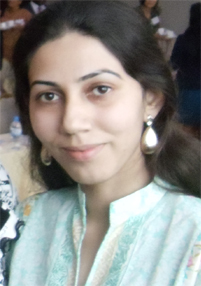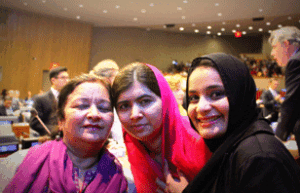Last week took the ITA team to Sindh where the National Education Policy (NEP) consultation sessions were conducted in Hyderabad, Mithi, and Sukkur. Our aim was to provide the Pakistani youth – teachers, students, activists, young entrepreneurs – with a platform where they can express their concerns regarding the current education system in Pakistan and give valuable inputs that can be incorporated in the revised education policy.
Our first stop was Hyderabad, the rural capital of Sindh. Like in our previous sessions, once again, the youth proved to be active and brought forth many valuable and thought provoking points. Attended by Education District Officers, youth, teachers, and other associations, we started the discussion by first briefing the audience on the National Education Policy and why there is a pressing need to revise the 2009 policy. After opening remarks from Professor Iqbal Naeem, a PAIS representative, we broke the audience into 7 groups, each addressing issues within the following sub-sectors: Early Childhood Education (ECE), Primary Education, Secondary Education, TVET and Special Education, NFE and Adult Literacy, Governance and Financing of Education, and Madrassa education.
A reoccurring topic in Hyderabad was that of Life Skills Based Education which refers to educating Pakistani adolescents and young people regarding their sexual and reproductive health and rights. It was agreed by almost all present that LSBE is in fact the need of the hour and should be incorporated in the current curriculum. Keeping in mind the recent Kasur incident, participants agreed that we should start educating our children on these issues as soon as possible. One teacher said “at primary level we can start by telling our children about the “good-touch/bad-touch” or other basic lessons such as not talking to strangers or accepting rides from anyone they don’t know and so on. We don’t have to have a separate subject, we can just incorporate this in existing lessons”.
To read more about what happened in Hyderabad, please read the blog post by Saba Saeed
The next day, we travelled to Mithi –the capital of the Tharparkar district in Sindh – where we found students and teachers had even more to add to what they wanted to see in the new National Education Policy. Due to the remoteness of its location, Mithi has an even more limited access to resources. With an inadequate number of schools, there are many that are missing major facilities such as furniture, boundary walls, clean drinking water, and even operational toilet facilities. Participants highlighted these structural issues but beyond that they pointed out that the curriculum was severely lacking and outdated for the most part.
One secondary level student said “we are taught computer studies ONLY in the 9th grade, and then too we are being taught outdated things. Who in this day and age uses a floppy disk? When the whole world has advanced so much technologically, teaching us about floppy disks is useless and irrelevant.”
Teachers present at the consultation session in Mithi also seconded this concern and added that along with modernizing the curriculum, the language in which students are taught also needs to be revised. One primary level teacher said, “Here, the curriculum is in Sindhi, so we have no choice but to teach our students in Sindhi. What happens when they graduate from secondary schools and have to go to colleges in different cities and provinces? They don’t stand a chance! Not only can they not understand different concepts, they can hardly communicate with their teachers and class fellows. We are putting our children at a disadvantage. They have to be able to communicate in both Urdu and English. These things need to be revised and made a part of the curriculum.”
Mr. Prem Sherwani a journalist and educationist took the floor and gave a very passionate speech about the current state of education in Sindh. He pointed out that there were no qualified mentors present anywhere let alone at departmental level and so faculty as well as students have no source of guidance. He concluded by saying “we need career counseling and professional training facilities and we need to ensure that everything that happens, happens on the basis of merit. We must hire teachers who are qualified not ones who have the most backing.”
Like I mentioned in my previous blog post, it is nice to see so many people want to see a more progressive Pakistan and are actively participating in trying to bring about change. In my opinion, with this sort of community engagement and participation we will definitely succeed in achieving our literacy goals. A solid, all encompassing policy, with voices and recommendations of the masses, is as good a place as any to start and set Pakistan on the path to becoming one of the leading economies in the world. It will be some time before we can see the fruit of our efforts but I am certain that with patience, hard work, and determination, we will see the difference we are all uniting to make.
All recommendations have been noted, reviewed and collated. Proceedings from all provincial consultation sessions can be found online at https://itacec.org/nep.php . We would also love to hear your input on what should be included in the NEP 2016. Please do visit the discussion forum and leave your comments.
Disclaimer: The views expressed here are those of the authors and do not necessarily represent the views of Idara-e-Taleem-o-Aagahi (ITA)





